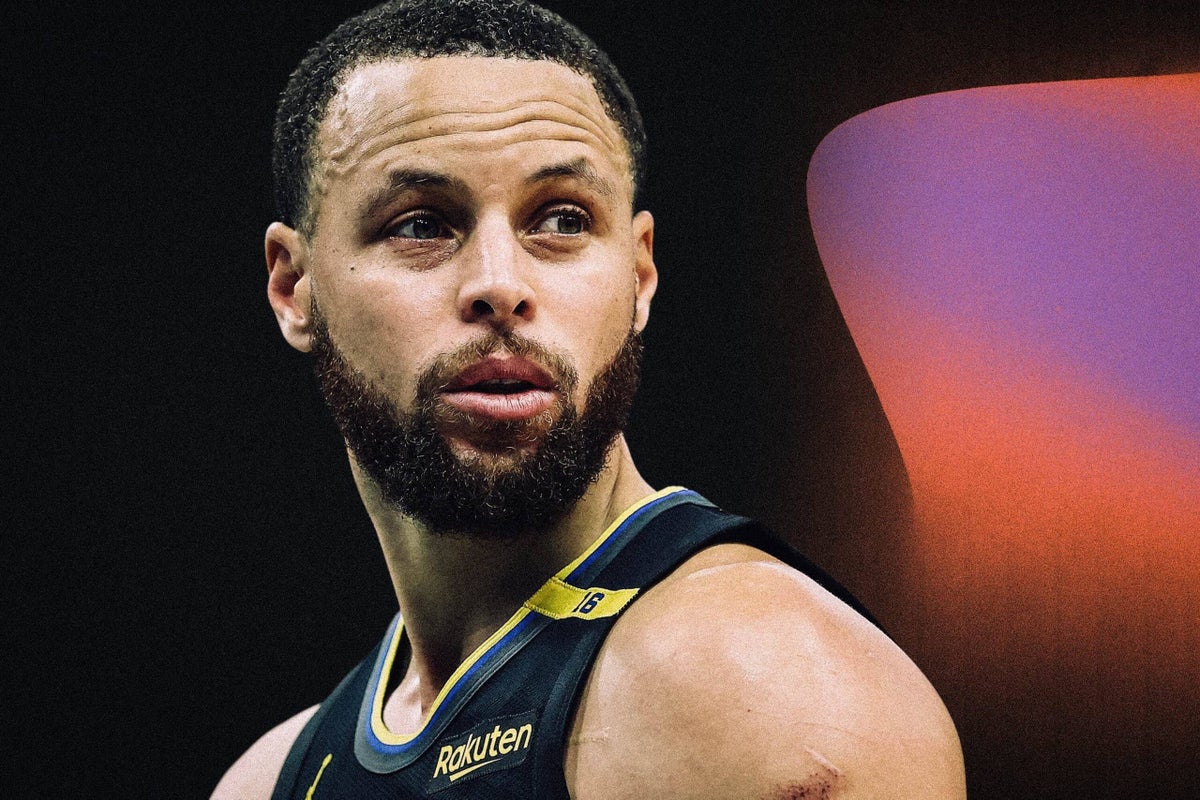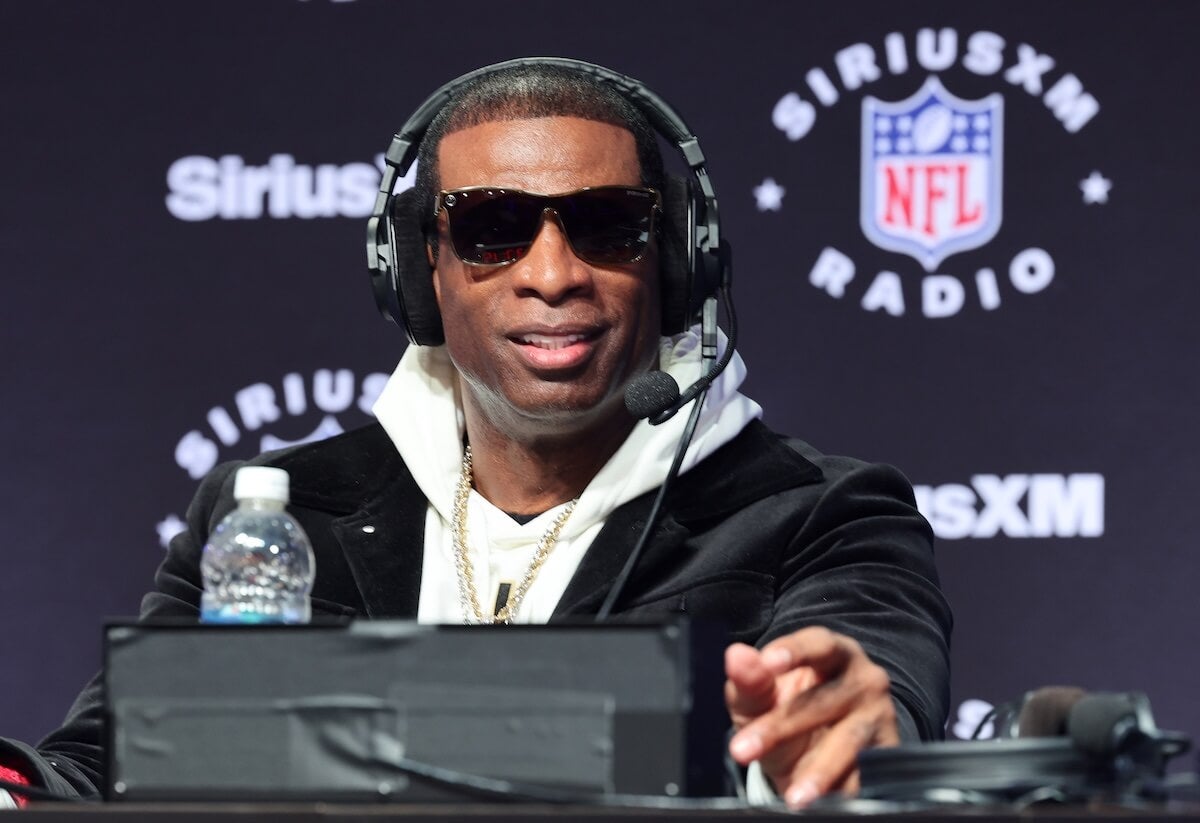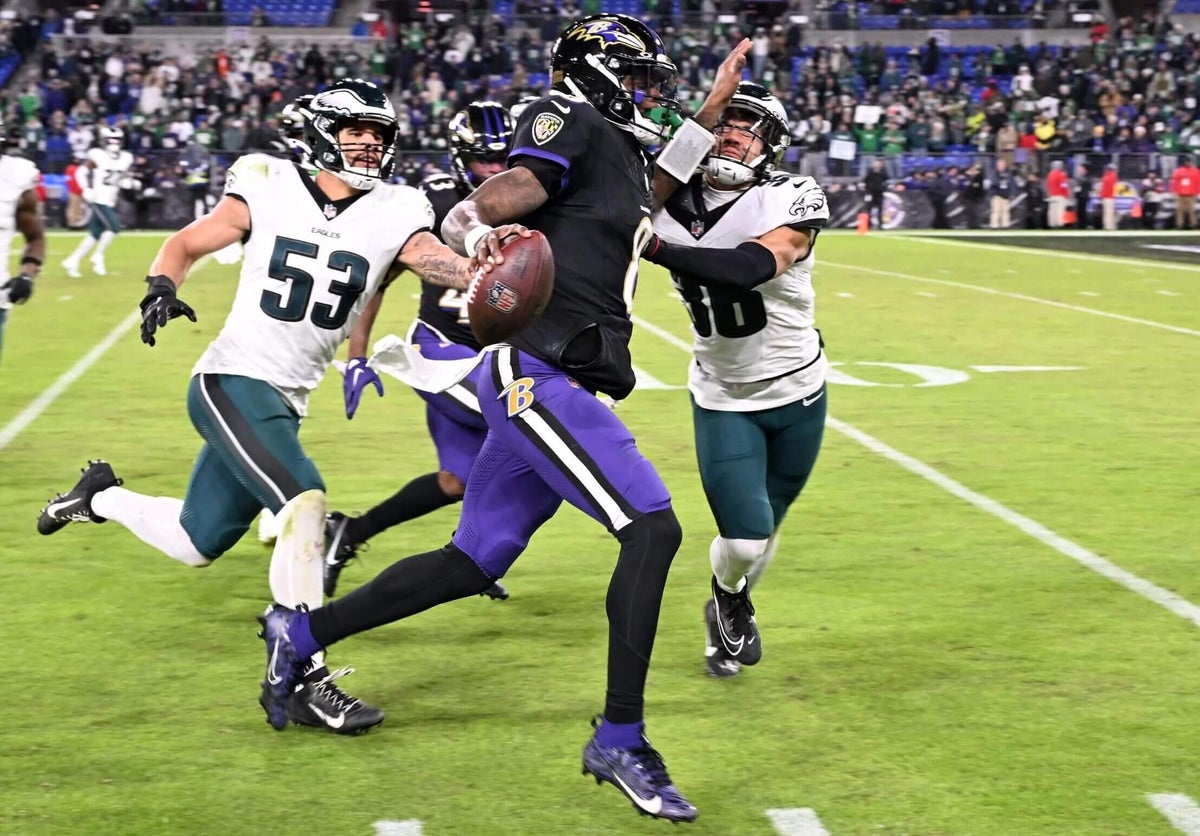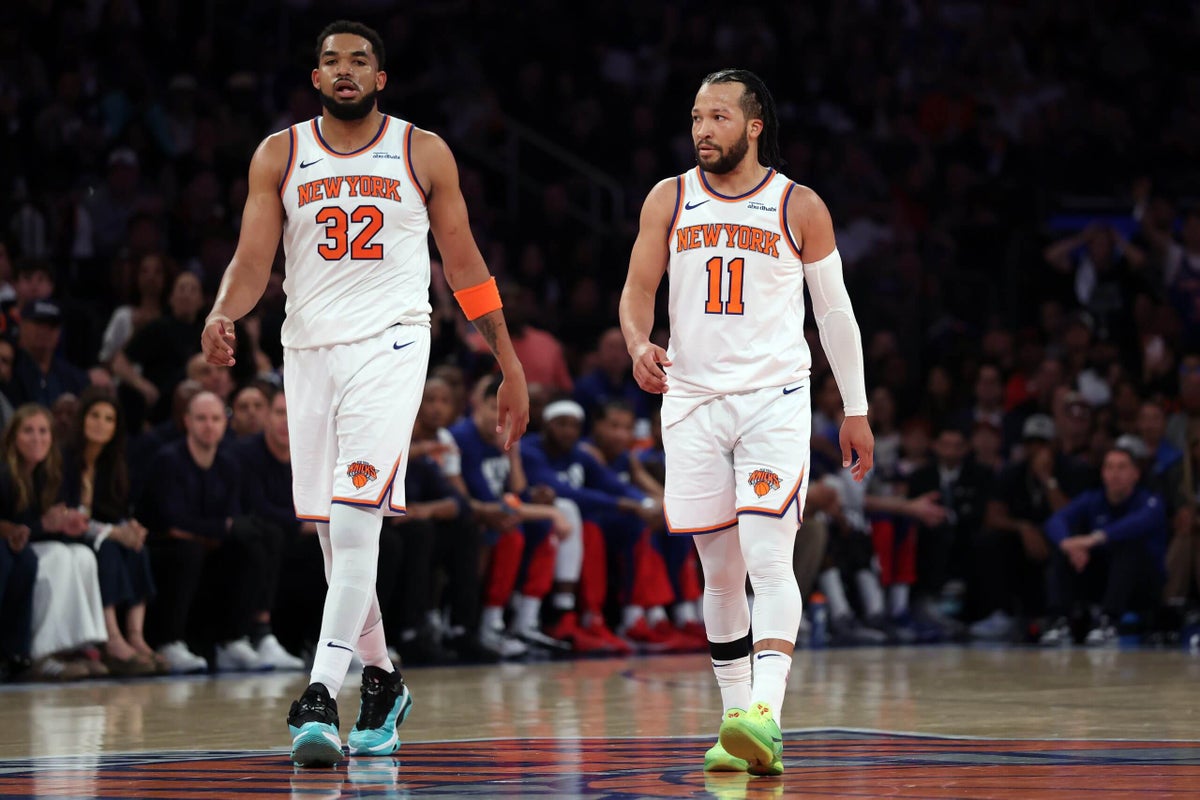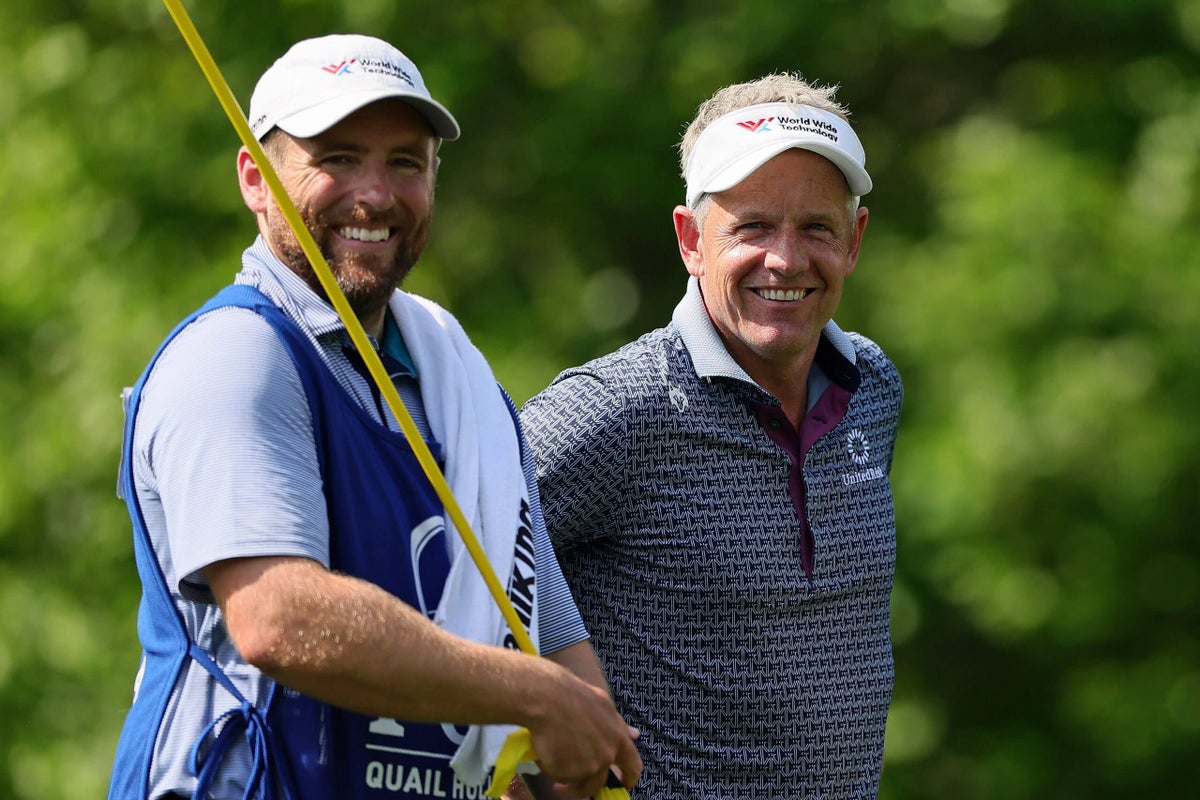Editor’s Note: This story is a part of Peak, The Athletic’s new desk covering leadership, personal development and success through the lens of sports. Peak aims to connect readers to ideas they can implement in their own personal and professional lives. Follow Peak here.
One day at practice, Steph Curry, the greatest shooter in NBA history, decided to kick a basketball.
No one can remember exactly how or why it happened. Did the ball gently bounce toward Curry in that juicy kickball way that left him no other choice? Was he inspired by a recent visit to the Oakland Coliseum for batting practice? Did it just seem like fun?
Curry sent the thing flying inside the Golden State Warriors’ practice facility, and Nick U’Ren, the special assistant to head coach Steve Kerr, responded in a way that seems only natural: He tracked the arc of the ball like an outfielder and made the catch.
“We just kept doing that every day until it became a thing,” U’Ren said.
Eventually, they added layers: Curry kicked the ball, U’Ren caught it and relayed it baseball-style down the court to assistant coach Bruce Fraser, who relayed it farther down the court to Curry, who fired a 3-pointer. If Curry made the shot, he smiled, waved and they were done for the day. If he missed, the process started over, kick and all. Other times, Curry and Co. would bump the basketball around like a volleyball before he caught it and ripped another 3.
They’re the kind of silly games you’d expect a freshman basketball team to dream up at practice one day — not the greatest shooter in the history of the sport.
But Curry even has a name for that stage of his workouts: “Joy.”
Throughout his 16-year career, all with the Warriors, Curry has developed into one of the unique leaders of his era. Not overtly demanding or vocal, he challenges traditional ideas of leadership and provides a different framework in which to cajole, rally and inspire. At the heart of Curry’s leadership style is one word, repeated again and again by teammates, coaches and staffers. It’s the same word he uses for his end-of-workout games: Joy.
“He’s going to get his focused work in, but within that he’s going to have fun and enjoy himself, and I think that’s a part of his leadership style,” said Khalid Robinson, who has worked for the Warriors for nine years. “He wants his teammates to enjoy this process they’re going through together. Steph’s focus on joy and having that in every part of his life is a big part of what makes him a good leader.”
The Athletic spoke to 20 coaches, teammates and staffers from both the Warriors and Curry’s college days at Davidson. The stories they shared are good; the lessons within them can help anyone become a better leader.
Lachlan Penfold, Warriors head of physical performance: There’s this saying: “Great leadership is about allowing others to shine.” And that’s Steph.
Quinn Cook, Warriors guard: Game 7 of the Western Conference finals against the (Houston) Rockets. 2018. I had missed a big shot in Game 5 and had sent Steph, Kevin (Durant), Klay (Thompson) and Draymond (Green) a message after the game in the middle of the night like: “My bad.” All those guys were like: “Don’t worry about it. We want you to take that shot.” We won Game 6 and Game 7, and me and Steph were walking back from the trophy presentation on the court to the locker room and I was crying. I know it was just going to the finals; usually you cry when you win the finals. But I’d been through a lot to get to that point. He put his arm around me and was like: “Man, it’s good to see that guys really care.”
Jim Fox, Davidson assistant coach: He wants to be the best player in the world but also wants to be the best teammate in the world.
Cook: We ended up winning the championship that year and I just remember him and Kevin were looking for me like, “Where you at, champ? Where’s the champ?” It was Steph’s third championship, but it was my first, and he was looking for me. There’s a video of him just hyping me up. In that finals I wasn’t in the rotation at all. But he made me feel just as important as anybody. That’s something I’ll never forget.
Penfold: I just have memories about how he made me feel: As equal and as special as anyone else in the building.
Cook: I started in his place when he got hurt. We were playing Phoenix. He didn’t travel with the team because he was back rehabbing. At halftime, I might have had like eight points and maybe five shots. Everybody checks their phones at halftime, and I had gotten a text but I didn’t know the number so I didn’t even pay it no mind. Then the number texted me again so I clicked it open and it was like: “Call me real quick. This is Steph.” So I called him. This is during halftime! He’s like, “Man, be aggressive. They’re doing this and this on the pick-and-roll.” He didn’t have to do that, but he knew what his text would do for me.
Andrew Lovedale, Davidson forward: My coach always said, “Be a shining star, do not be a shooting star.” A shooting star can just go up there and be beautiful and create all the buzz. But then it disappears. What a shining star does is it stays up there and, for a very long period of time, it gives light to everyone. That’s the model for Steph’s leadership.
Glenn Robinson III, Warriors guard: When I first met him, I signed my contract with the Warriors right before training camp. He walked into the gym and I introduced myself. I’m like, “Hey, Steph. I’m Glenn.” And he was like, “Nice to meet you. I’m Stephen, I know who you are.” And he said his actual full name and I’m like, “Everybody knows who you are; you don’t have to say your full name.” But that, right away, told me who he was.
Alfonzo McKinnie, Warriors forward: When I made the roster for the Warriors, Steph was the first person to congratulate me.
Eric Housen, Warriors team operations: The most amazing thing that happened to me was he mentioned me in his first MVP speech. I was shocked. This was his moment, this is what he earned, and he thinks to thank the equipment guy. That was just… I don’t even know how to describe the impact that had on my life and the feeling that came over me.
Luke Loucks, Warriors assistant coach: I started at Golden State as an intern in the film room and doing player development work, making minimum wage. I was at the very bottom of coaching just trying to get my foot in the door. From Day 1, Steph treated me like a coach on the staff. In that first year, my wife got pregnant with our first child, and Steph found out she was pregnant at the end of the season. He and his wife, Ayesha, bought us strollers and car seats, basically everything you would need for your first baby. They were just sitting in the hallway, and he was like: “Hey, Luke, all these are yours.”
Zaza Pachulia, Warriors center: My daughter and his daughter played volleyball. They were playing against each other, so Miriam, my daughter, and Riley, his daughter. I couldn’t go because I had to go to an AAU tournament. Steph was at the game so he called me to tell me: “Hey, Miriam just blocked Riley and she’s screaming her mind off!” It’s every day with him.
Loucks: I was coaching with Mike Brown in Sacramento and we finally made the playoffs. We play Golden State, which was kind of ironic because we had so many former Golden State coaches on the Sacramento staff. An incredible series. We play them Game 7 at home, and Steph drops 50 points on us. Fifty. After the game, we’re on the court and I congratulate all those guys. I didn’t even know what to say to him. “Good game?” What do you say when someone scores 50 and knocks you out of the playoffs? And he asked me if Stevi, my wife, was in the building and he knew all of my kids’ names. He drops 50, knocks you out of the playoffs and is like: “Tell your wife I said hello.”
Lovedale: My teammates, most of us, when we’ve gotten married, we’ve played pickup in the morning. All the guys are in town so what better thing to do than to play the game that we all love? So I had my wedding. This was the time when Steph was just coming back from the ankle injury everyone said would destroy his career. And I was having that special day of my life, but did not expect, given what he was going through, that he would show up. We came to play that morning and guess who was there on time?
Steve Rossiter, Davidson forward: Steph always went out of his way to just be one of the guys.
Lovedale: But he didn’t just show up; he showed up and he played. He played because he had a friend who was getting married, and that was something we all liked to do on our wedding days. I don’t know if I’ve had the chance to say to him how it meant the world to me.
Kerr: You automatically respect the guys who are the best players in the league. Automatic. And Steph is one of the best players of all time. So he already has the respect and then he goes into the locker room and there’s this authentic humility and compassion for his teammates. That’s so rare. I think that’s the key to his leadership. This amazing combination of those two traits.
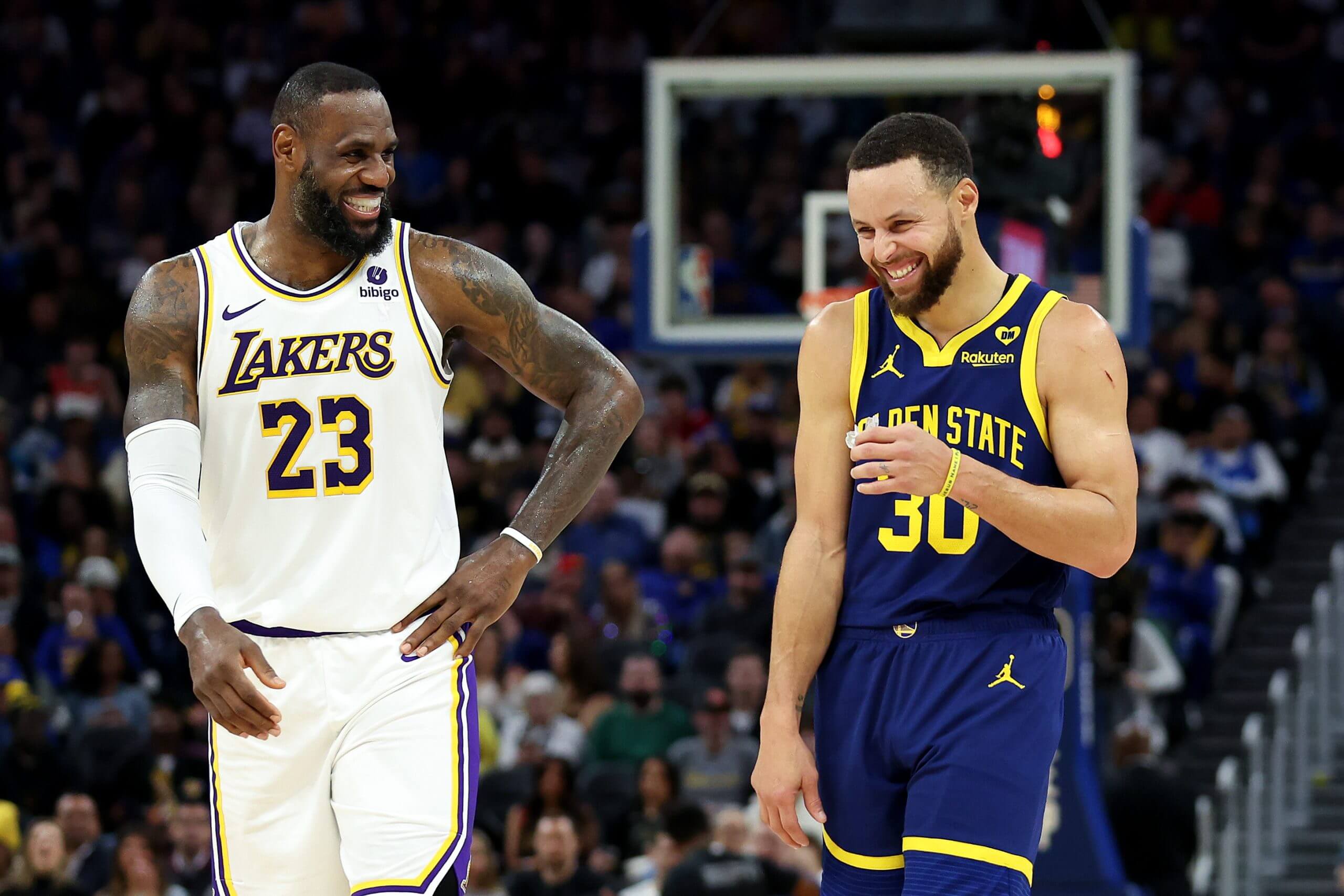
Loucks: He is trying to kill everyone. But he does it with a smile on his face and joy.
Bob Myers, former Warriors general manager: He’s probably one of the most competitive people ever.
Loucks: We used to play this shooting game. I had just finished playing in Europe; I was an OK shooter, so I would get five spots on the court and I would shoot until I missed and as soon as I missed, I moved onto the next spot. I would go first and then he would go second, but he would get only two spots. He would have to beat my score in two spots and I got five, which is totally unfair. I think my total score one time was 23 or 24 and I’m talking a little smack. This joker, in the first spot, makes 57 straight 3s. He tosses me the ball, takes an imaginary golf cap off his head, says good game, then runs off the floor laughing.
U’Ren: He’s going to kill you with a smile.
Aaron Miles, Warriors assistant coach: We were playing against Minnesota and we were down by like 13 or something. It was the second half. We turned it over, they go on a run and Malik Beasley ends the run with a dunk. He dunks it hard on a fastbreak and he goes: “BOOM! BOOM!” And he was screaming it as he ran past our bench. Steve called a timeout. I was behind the bench at the time, and I was sitting there and I looked at Steph. He had the towel over his head. His eyes were squinted. And he followed Malik the whole way back to the bench as Malik screamed “BOOM” all the way to the bench. Leandro Barbosa went up to Steph and went: “You show that motherf—er what boom is.” Steph just nodded. When Steph subbed back in, he hits a 3. He gets it again, hits another 3. Now we make a run. He comes down in transition, hits another 3. They call timeout and he looks at the bench and goes: “BOOM! BOOM!”
Fraser: True story.
Loucks: There’s this uncharacteristic competitive spirit he has that’s contagious around the whole organization.
Miles: I was coaching in Boston and we played against him in the finals. We were up in the series 2-1. We were feeling good about ourselves, man. At the end of Game 3, the crowd was chanting: “F YOU, DRAYMOND.” Steph squinted, looked up into the crowd and nodded. I hate to sound like a punk, but I wanted to get on the mic over the PA system and go: “Man, can y’all please just leave it alone? Leave it alone.” Not that I was worried about Draymond, because we can fluster him. But I knew what Steph was thinking: “You’re disrespecting my brother.”
Fraser: After that game, no one was happy. We were in a tough place. All the coaches and managers go around and shake hands with every player after the game. It’s just kind of a routine. When I went to shake hands with Steph, he was shaking his head — like up and down, in a good way. He had a serious look on his face and he said: “I feel great about this.” I’m thinking to myself: “I feel horrible. You feel great?” That’s what I’m saying to myself. He just shook his head with a very serious tone and those eyes and said: “You know what’s coming next game.”
Myers: He’s the most confident — genuinely confident — athlete I’ve ever been near.
Miles: Game 4 came around and “F YOU DRAYMOND” chants came on again. Next thing you know, Steph starts to do what he does. I think he had 40 (Editor’s note: He had 43). They ended up coming back and winning, and I remember he ran over to the crowd and looked into the crowd after the game. I don’t know exactly what he said, but he might have used some vulgar language himself. I just shook my head.
Fraser: He’s a killer.
Miles: He’s a quiet killer.
Fraser: He’s not bothered by failure or discomfort. He’s fueled by an internal drive that burns without you seeing it.
Penfold: I’d often come to Steph and say: “Have you thought about doing this?” One example was float tanks. I said: “Have you thought about doing this for recovery?” He goes: “No. Why would I do that?” I gave him the reasons. He looked at me and goes: “Will it make me better?” I said: “I think so.” And he goes: “Let’s try it.”
Chasson Randle, Warriors guard: Anything to give him a competitive edge or keep him sharp.
Penfold: He’s just trying to be the greatest he can be and master everything. I think that’s a really important quality of leadership, which is a subtle form of leadership. If everyone else sees this guy, who is already at the top of his game, trying to become better in different ways, then it inspires others to become better.
Cook: He leads by example and guys follow him because he puts the work in.
U’Ren: He’s able to meld work and play.
Damion Lee, Warriors guard: Arguably the hardest-working guy I’ve ever been around.
U’Ren: I used to be in charge of the music for practice. Every once in a while he would latch onto a song and we would play that song on repeat. One time there was a part of a song with a xylophone in it. He’d take three shots and then play this pretend xylophone. If anyone else did it, it would be corny. But it’s so genuine and pure with him, and it’s both magnetic and infectious. That set the tone for the entire organization.
Marreese Speights, Warriors forward: He always came to practice and was the most energetic person.
U’Ren: After practice, we would throw the ball up and he and I would jostle for like a 50-50 ball and then I’m out there mock guarding him, trying to play some token defense. I’d guard him for 75 feet, he’d take three dribbles and nail a 3 from two feet beyond midcourt. But you know what? Some of that ended up translating in games.
Fraser: It’s all to generate energy — positive energy and to have fun and then to chase something that would be insurmountable for most.
Shaun Livingston, Warriors guard: He was never too cool. That’s what made it fun. That’s what made him who he was.
Fox: Steph would steal my phone if I ever left it on my desk and he would switch a girlfriend’s number out and put his number in. So all of a sudden we’re taking a bus ride back and I’d be getting texts from who I thought was a girlfriend and it was Steph.
Livingston: Halloween, St. Paddy’s Day, Christmas, he’s showing up in the spirit. He’s got the ugly sweater on … Halloween one year was “Saw” and he came in the wheelchair and mask.
Fraser: He has fun within very serious moments. He’s always locked in when the games are going on, but it’s not uncommon for him to have a sidebar with me when he’s out of the game. He might talk about anything from strategy or what’s going on out there, or it could just be: “God, that guy over there has a brown sweater and yellow pants.”
Jerry Stackhouse, Warriors assistant coach: That’s how he’s able to take advantage of the moment because it’s not life or death to him. He’s going to have a good time with it.
Fraser: Over the years when we’re in Charlotte, during pregame warmups, I’d see people yelling close to the court and saying hi to him. Steph would stop and wave and say, “Hey, Mr. Johnson” or “Hey, Bill.” I’d look at him and he’d be like, “That’s my dentist.” We’ve had an ongoing joke about all these people that seem so random, but he’s happy to see them. It tickles me and I’ve taken an appreciation for his comfort in big moments. When the game is going on but he’s sitting out, he might come to me to talk about basketball or it could be, for instance: “Hey, guess who’s taking my tickets tonight?” Now I’ve got to try to guess. I’m racking my brain. He was like: “My dry cleaner is here tonight.”
Pachulia: We won the Western Conference championship. They provided hats, and the hat didn’t quite fit me. Steph and his laughter definitely enjoyed the moment when I tried to squeeze that one-size-fits-all hat on my head. He was loving it. Right before the finals that year, we had our first practice to start preparing for the Cleveland Cavaliers. Everyone was sitting around this big-screen TV. There was this huge box right underneath the TV. I figured it was some delivery. Who knows? Finally, Steph said, “Hey, coach, before you start the meeting, I have a special gift for a special person on this team.” He opens the box and pulls out this gigantic custom-made hat that says “Western Conference Champions” and all that. I know my head size is not normal, but 10 Zaza heads could fit in that hat. That hat hangs in my office now.
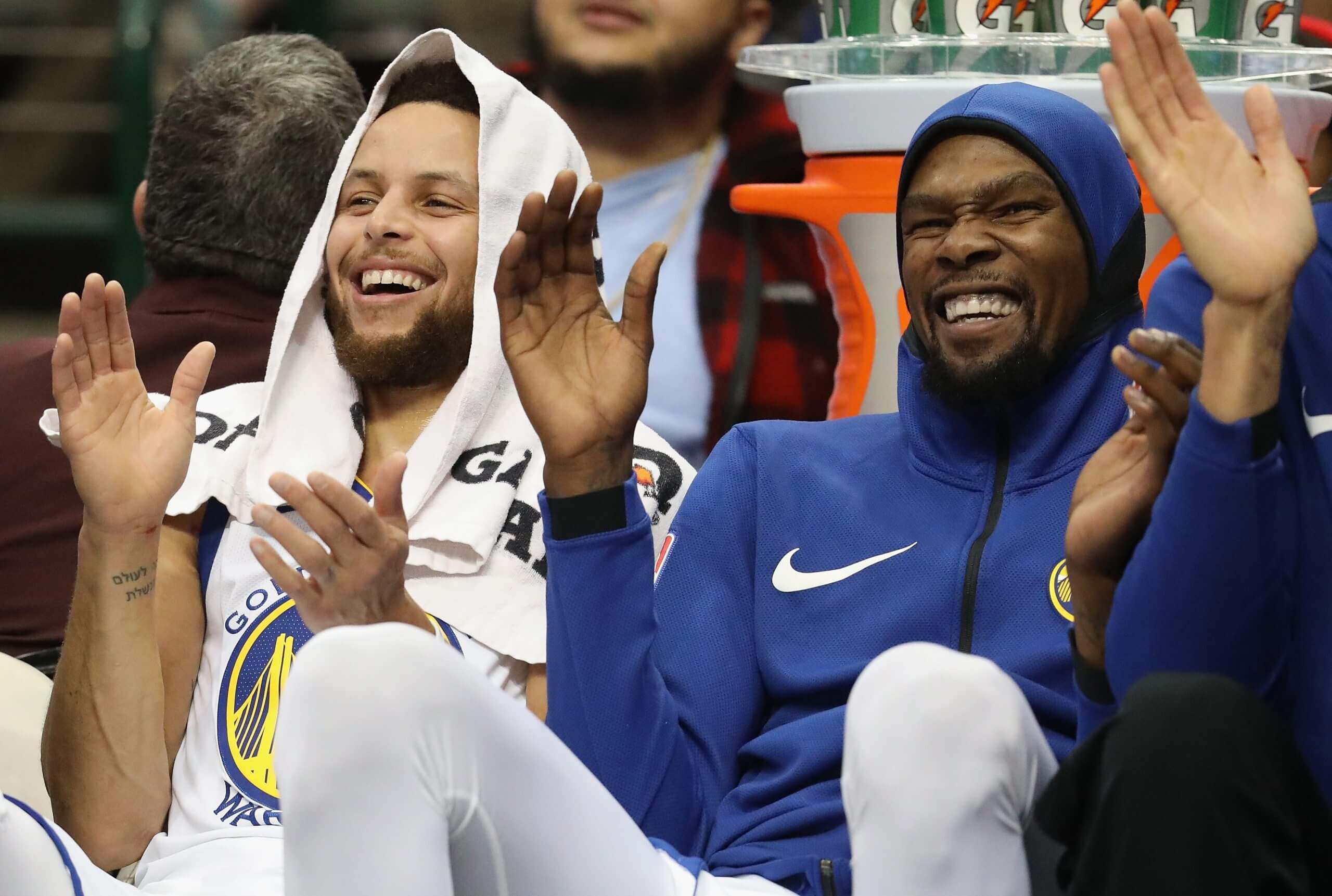
Myers: My favorite thing about him, out of everything he’s done, is how he supports his teammates on the bench. I’d grab him after games and say: “Hey, you did an unbelievable job tonight… on the bench.”
Khalid Robinson: In the 2018 finals, Kevin Durant hits up a pull-up 3 on the left wing. That shot pretty much won us the game. There’s this cool iconic picture of Steph and Draymond screaming at KD with just pure joy. I don’t remember Steph’s stats from that game; I don’t know if he had a great shooting night or not. But I do remember how joyful he was for Kevin in that moment.
Pachulia: Klay Thompson has the most 3s in an NBA game with 14. He beat Steph’s record in Chicago; Steph had 13.
McKinnie: When (Klay) was getting close to (the record), Steph was pushing us all, saying, “We need to get Klay more shots. Klay needs more shots.”
Pachulia: In Chicago during that game, Steph passed him the ball and before Klay even shot the ball (to break the record), Steph’s hands were in the air because he was just so happy even though it was his record that was being broken. I have that picture. That picture is who Steph is.
Penfold: It’s not just about his joy, it’s his joy in others. And that, that to me is the difference. He shows it’s about the team.
Rossiter: He just carries himself with so much joy.
Housen: He just has joy in doing his work.
Randle: He’s there to bring joy and you feel that.
Zaza: Joy. That’s who he is.
Penfold: Steph embodies joy more than any sports person I’ve ever seen. That’s a fantastic leadership quality to have because it catches on so quickly. But he doesn’t just love basketball.
Kerr: He loves the game, he loves the work, he loves being part of the team, he loves the bus rides, he loves the banter.
Myers: I always told him I was so jealous of him. Not the money, not the fame, but how happy he approaches each day. That’s a skill, and that’s also leadership.
(Illustration: Eamonn Dalton / The Athletic; Stacy Revere / Getty Images)
